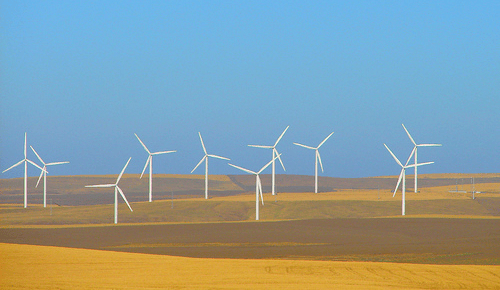
CMCC hosted the first joint meeting of the Adaptation Services (AS) and Land and Water Engineering for Adaptation (LWEA) Platforms of the Climate-KIC (Climate – Knowledge and Innovation Community) initiative on November 19th, 2013, in Bologna.
The goal of the meeting was to provide an introduction to platform strategies, the emerging flagships, existing project portfolio and provide opportunities for ideation and partnership mapping. Forty-seven colleagues participated.
Various presentations were made by CMCC members: Silvio Gualdi on “The Climate Services from CMCC”, Sergio Castellari on “The work in progress towards an Italian National Adaptation Strategy NAS”, Jaroslav Mysiak on “Disaster risk: economic impacts and policy instruments”, Fabio Eboli on “Macro-economic tools for adaptation cost benefit assessment” and Jonthan Rizzi on “Climate risk and adaptation services in coastal zones”. The City of Bologna, with whom CMCC collaborates, presented the ongoing work on the Adaptation Plan in this City.
The two platforms presented their flagships: 1) AS Oasis with a focus on model catastrophe calculation of the risk; 2) LWEA Climate Adaptation Financing Coastal Areas (CAFCA) which is “action perspective” with key elements such as financial aspects, delivering financial services, projects, more profitable investments horizons and climate adaptive solutions promoted; 3) LWEA Climate Smart Agriculture which tries to reduce GHG by sectors, increase resilience of agriculture sector and productivity and income.
Participants are still encouraged to join CAFCA (Climate Adaptation Financing Coastal Areas e Climate Service Adaptation) and CSA (Climate Service Adaptation), the LWEA platform projects in the framework of Climate-KIC.
The chairs of AS and LWEA presented the main lines of the two platforms: AS is favoring cross pillar initiatives, cross platform collaboration and adaptation metrics, while LWEA is focusing on resilience to extreme events, sustainability and robustness, new tools to manage socio- ecological aspects.
The session finished identifying some new 15 ideas clustered in three groups: observations, assessments and standardization of innovation/behavioural change and energy and water management.
The meeting closed summarizing possible joint actions among these two platforms: need for joint evaluation of proposals and joint ideas creation; share evaluation process of proposals, identification of overlaps and complementarity among the two; evaluation of the adaptation potential of innovation; need to focus goals and strategy of each platform; communicate needs broadly; hook onto flagships.


